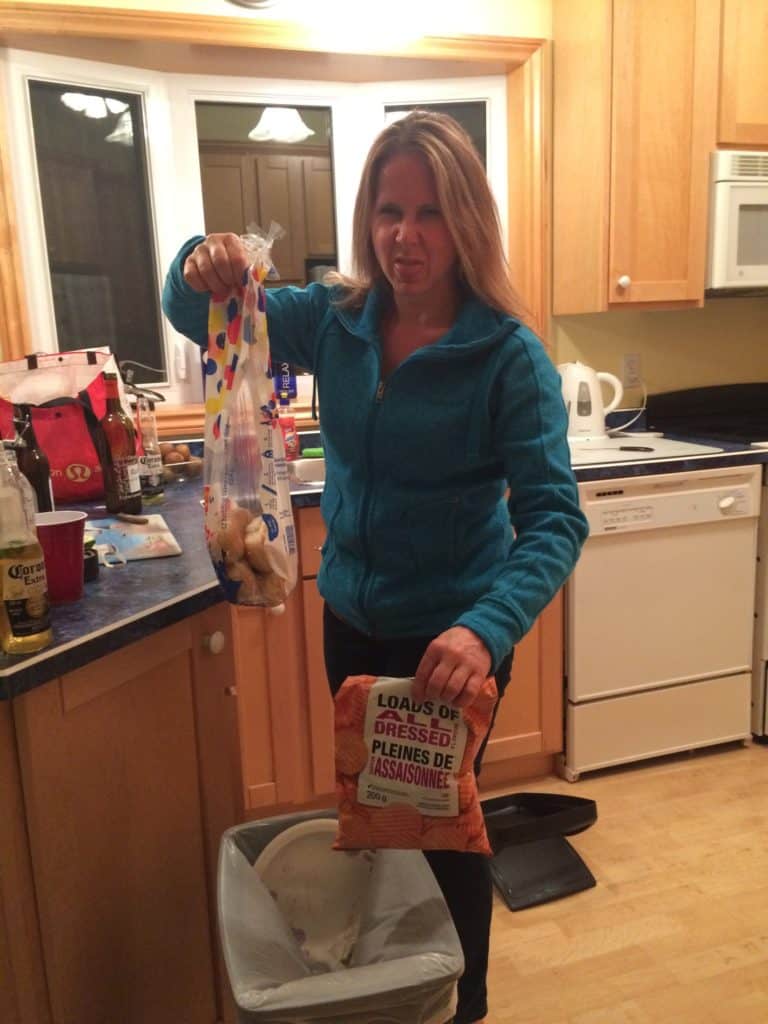Should You Avoid all Processed Foods?
We have all heard about the harmful effects of eating processed foods. In fact, they’re considered to be one of the biggest contributors to obesity, high blood pressure, heart disease, type 2 diabetes and even many mood disorders.
It should be easy then, to say yes, all processed foods should be avoided. But hold on, it really isn’t that simple of a question to answer. The first thing that must be clarified is, what exactly is a processed food?

What is Processed Food?
Processed, or convenience foods have been changed from their natural state in some way. These foods are “commercially prepared” for quick and easy eating, requiring little or no preparation. These ready-to-eat, frozen, refrigerated, or shelf-stable products are usually packed with flavour that comes from either chemicals, salt, sugar or unhealthy fats, so they’re appealing to eat and easy to over consume. They also usually cost more versus home cooking.
I know I’ve said in the past, that processed foods should be tossed, and I still believe that junk food should be thrown out. However, I feel that some processed foods may have a place in your kitchen.
Processed Foods Aren’t Created Equal
There is a range of processing that goes on in foods. “Minimally” processed foods are items that you can recognize in their natural form. They include bagged spinach, salads, cut-up vegetables and nuts. These are foods that many of us would consider to be very healthy! These foods are simply pre-prepped for convenience. I use this form of “processed food” weekly, almost daily in my salads!
Heavily processed items, on the other hand, can’t be recognized from their original form. They include pre-made meals, microwave dinners, cookies, chips, deli meats and more.
The key is to consume more “minimally” packaged items, and limit the “heavily” processed foods.
2 Benefits of “Minimally” Processed Foods
They Make Cooking Quicker and Easier.
“Minimally” processed foods are quick and easy alternatives that can speed up the preparation of a ‘mostly home-cooked’ meal.
- Add frozen vegetables to all of your soups and stir fry meals. These items are frozen at their peak to preserve nutritional quality and freshness.
- Toss a can of beans into many of your weekday meals to add fibre. Canned beans are a faster alternative to soaking dry beans for 8 hours a head of time.
- Packaged broth is a great way to add flavour to ‘homemade’ soups. Try using the no or low salt versions. I tried making my own broth once with a turkey carcass, never again! I think I over-boiled the bones and the whole soup tasted terrible, not to mention it took me a few extra hours to try making the homemade broth!

They Help you Follow the 80/20 Rule
Follow your healthy eating habits 80% of the time and enjoy life and loosen the reigns a little for the remaining 20% of the time.
Although they’re delicious, I’m not going to make my own crackers every time I want one. Sometimes the boxed version will come out. Just understand that there is very little nutritional value in heavily processed foods, regardless of claims on the labels. Claims on processed foods are typically an advertising ploy, used to confuse consumers.
Here are some things you should be aware of before purchasing a processed food…
3 Tips for Eating “Healthier” Processed Foods
- Can you pronounce all of the ingredients? Purchase products containing a limited number of long and technical sounding ingredients. The more technical sounding ingredients that make-up your food, the more processed and chemical it probably is. Also, foods with shorter ingredients lists are often better. Short lists usually mean the product is more natural.
- How long is the shelf life? Select products with a shorter shelf life. If brand has a shelf life of two years, chances are, that product is filled with chemicals, and it has basically zero nutrients.
- How do you feel? Pay attention to how you feel after each meal. You’ll probably be surprised to discover how drained, foggy or bloated certain foods make you feel. These types of feelings aren’t great for your health and foods that cause them should be limited in your diet.

To Sum it up…
I hope you now see that processed foods are more than frozen pizza, cookies and chips. Some “minimally” processed foods may in fact help make your diet healthier because of the time savings their pre-preparation offers.
Make an attempt to limit your consumption of “heavily” processed foods. Avoid products with long ingredients lists and long shelf lives. These products don’t contain much, if any nutritional value and they will often make you feel tired, drained and less healthy.
Sources:
- https://en.wikipedia.org/wiki/Convenience_food
- Poor, Fine, Good, Better, Best: A Guide to Processed Foods, Michelle Zive, July 12, 2018


Trackbacks/Pingbacks